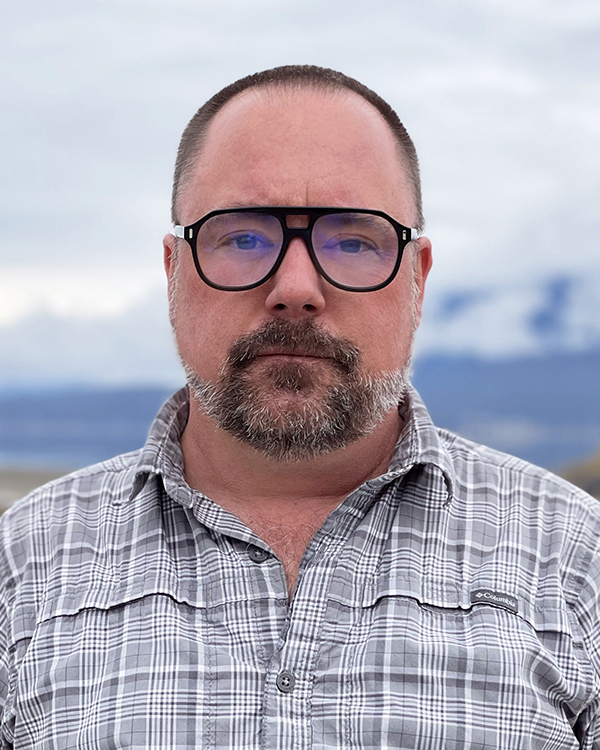Silviculture Services
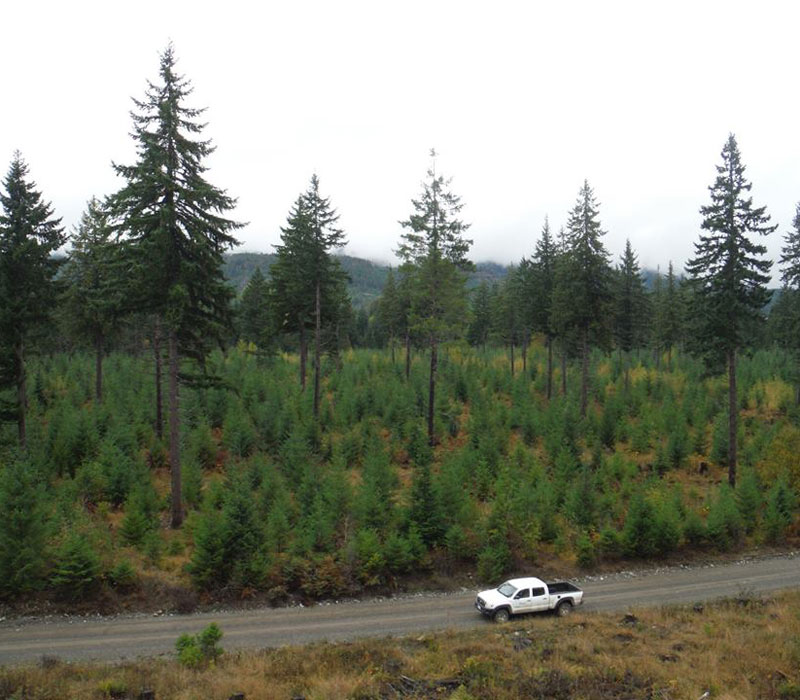
SILVICULTURE LIABILITY, MANAGEMENT, ASSESSMENT & REPORTING
Forsite’s qualified silviculture staff have extensive knowledge and experience in offering a full range of analysis options, management processes and forward-thinking programs for our clients. Individualized studies are conducted both in the field and office.
- Accrual Management and Cost Projections
- Liability Assessments
- License Management
- Survey Program Generation and Delivery
- Operational Prescription Development
- Silviculture Treatment Program Creation and Delivery
- RESULTS Reporting
REFORESTATION/PLANTING SUPERVISION & MANAGEMENT
Forsite conducts planting implementation activities with a core group of senior silviculture staff – for a full range of clients including licensees, BCTS, Ministry of Forest Districts, and Community Forests. These skilled personnel play a key role in the continuation of maintaining strong relationships with our clients and generating consistent planting projects from year to year. From small independent projects to large-scale government funded programs, our team can deliver success on all scales.
Planting implementation projects and activities are driven by our client’s objectives and resources, however, generally include all operational activities such as:
- Direct supervision
- Pre-work meetings
- Seedling management
- Seedling thaw requests
- Project coordination
- Planting quality assessments
- Pay Plots
- Client and contractor liason
- Deliverable reports
- RESULTS reporting
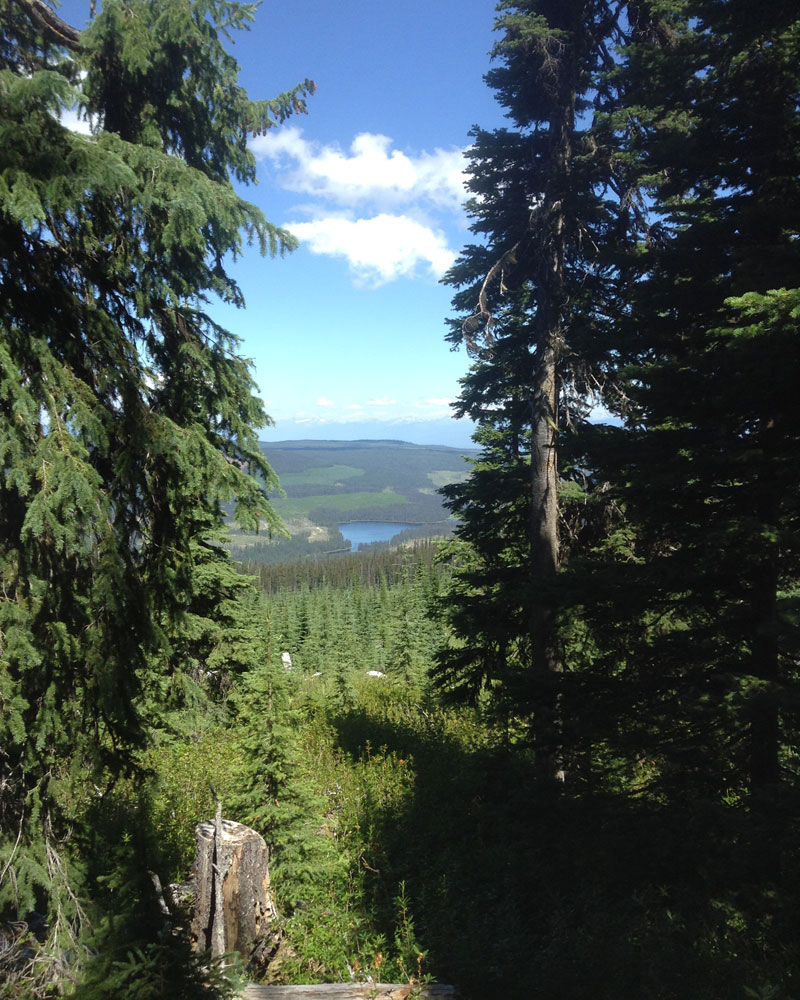
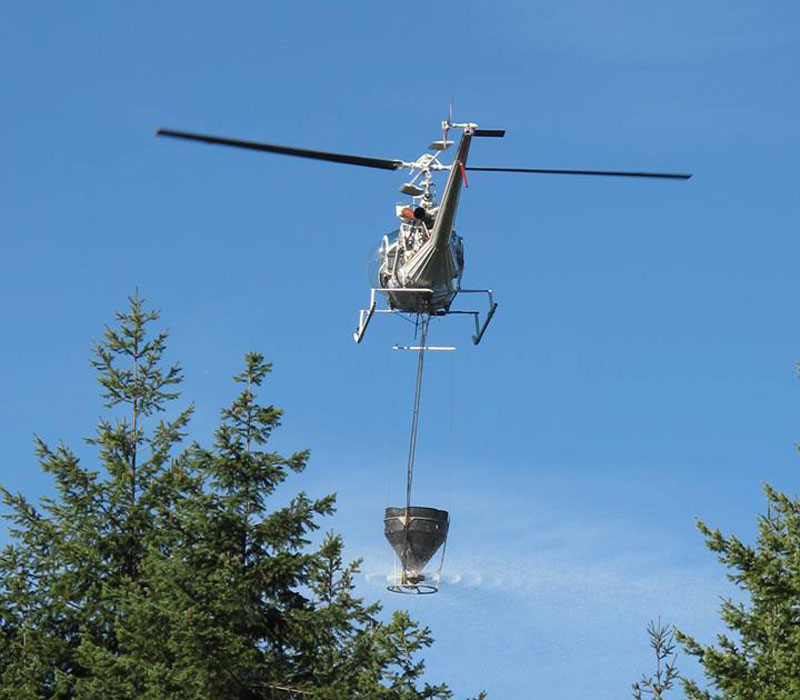
GOVERNMENT PROGRAM MANAGEMENT
Forsite regularly conducts activities on government programs, ranging from overall program coordination and delivery, to jointly delivering projects and programs by working directly with clients.
- Delivery of large scale government funded programs as well as project specific activities within large programs
- Forsite’s silviculture expertise allows us to deliver projects and programs of all sizes
- Working directly with clients to guide programs and to develop specific projects to meet program objectives
- Provincial, regional, and district technical support role with respect to silviculture standards, silviculture procedures, and program direction
- Operational contract generation for ministry clients (scope and content)
Contact Us
Projects
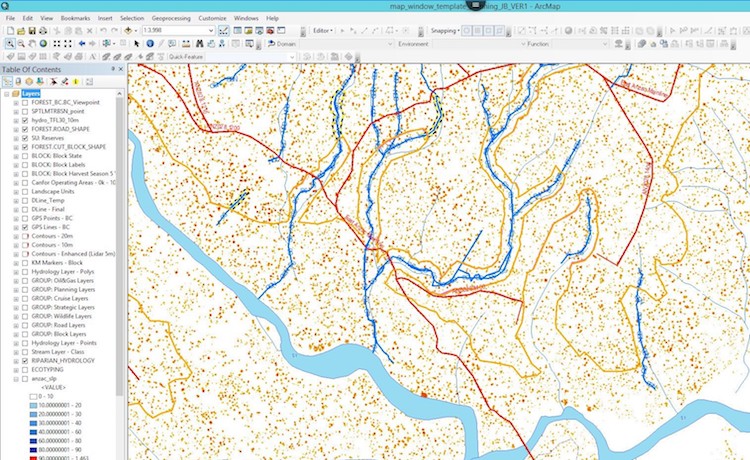
Land Based Investment
Under the Land Based Investment Strategy program, Forsite implements activities to rehabilitate Crown Land that has been affected by natural disturbances such as catastrophic wildfires and the mountain pine beetle epidemic. The objective of this program is to mitigate the declines in the midterm timber supply. For projects in past years we analyzed fire severity mapping to identify priority stands to target, confirmed this analysis through aerial surveys, carried out field surveys and developed survey reports and rehabilitation prescriptions, laid out the treatment areas with consideration of other values, supervised the site preparation and planting activities, and conducted reporting to RESULTS.
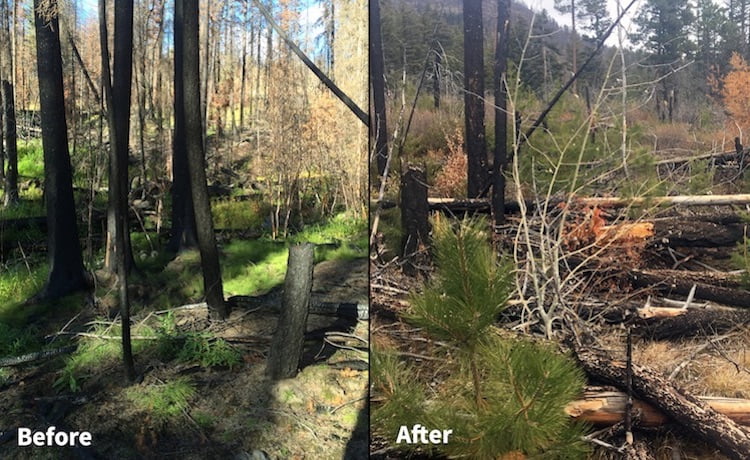
ELEPHANT HILLS WILDFIRE
In 2017, the Elephant Hills Wildfire near Ashcroft, British Columbia grew to an incredible 192,000 hectares over the course of 75 days Burning from early July to late September. Forsite was asked by the Province of BC to manage the silviculture activities for this fire using Forest Carbon Initiative funding. Communications were coordinated by the Thompson Rivers Natural Resources Region between all stakeholders in the area. All activities from helicopter recces, surveys, planting prescriptions, planting planning, tendering contracts to tree planters, implementing planting programs and following up with survival surveys were covered by the provincial funding. Forsite has a long history of silviculture surveying in and adjacent to the affected area of the Elephant Hills fire and knowledge of the landbase was crucial to decision making during and after the fire. Within the first year after the 2017 fire Forsite’s team noticed a significant difference between the responses of competing vegetation, particularly pinegrass. In the first years after the fire, focus was on surveying and reforesting the sites with the greatest fire mortality. Today, we are still surveying and learning about sites with lower fire intensities. See full case study here.


